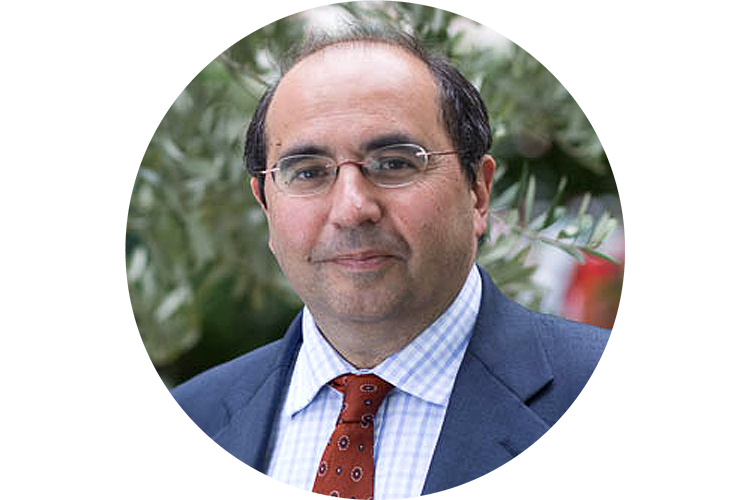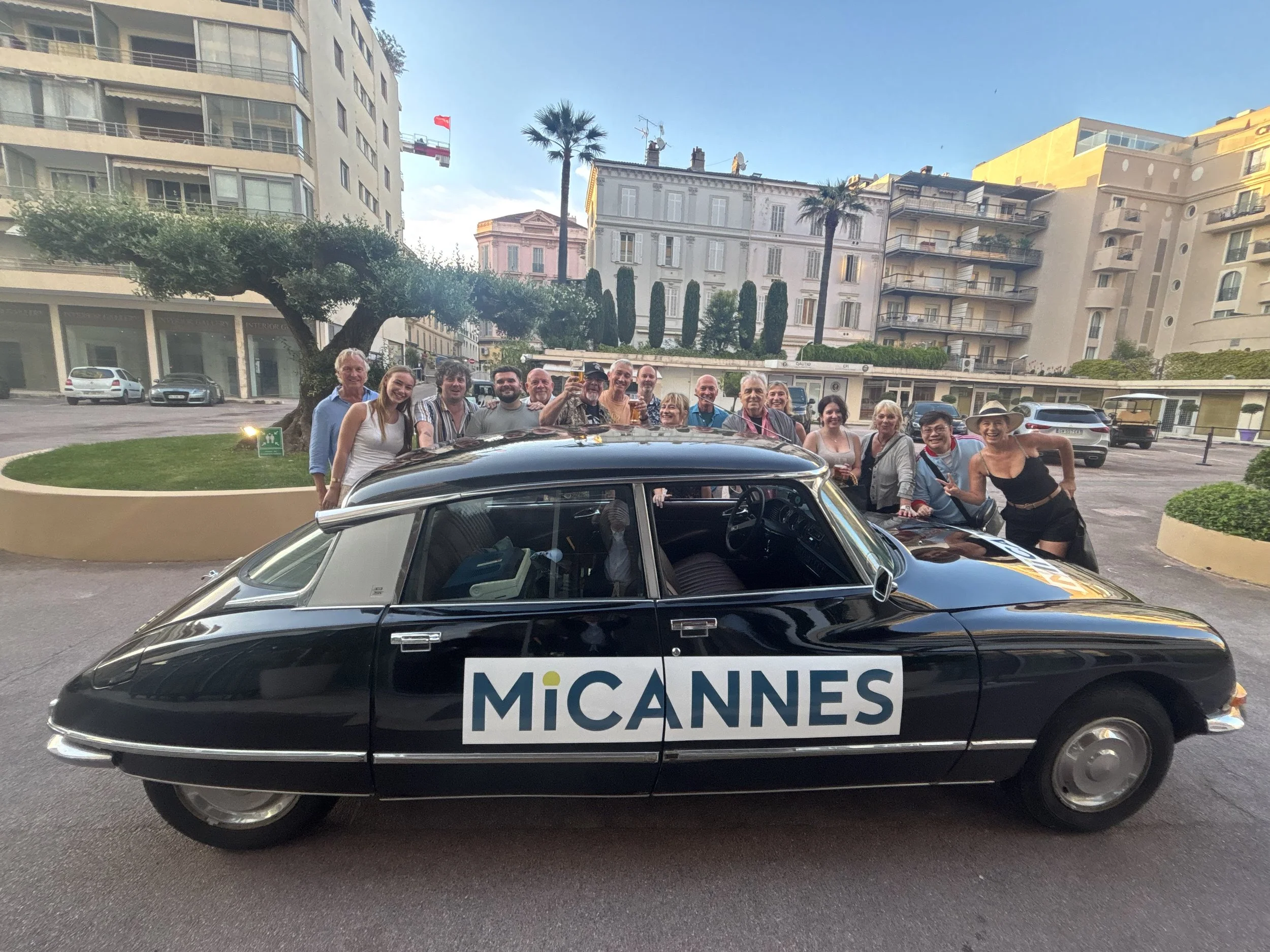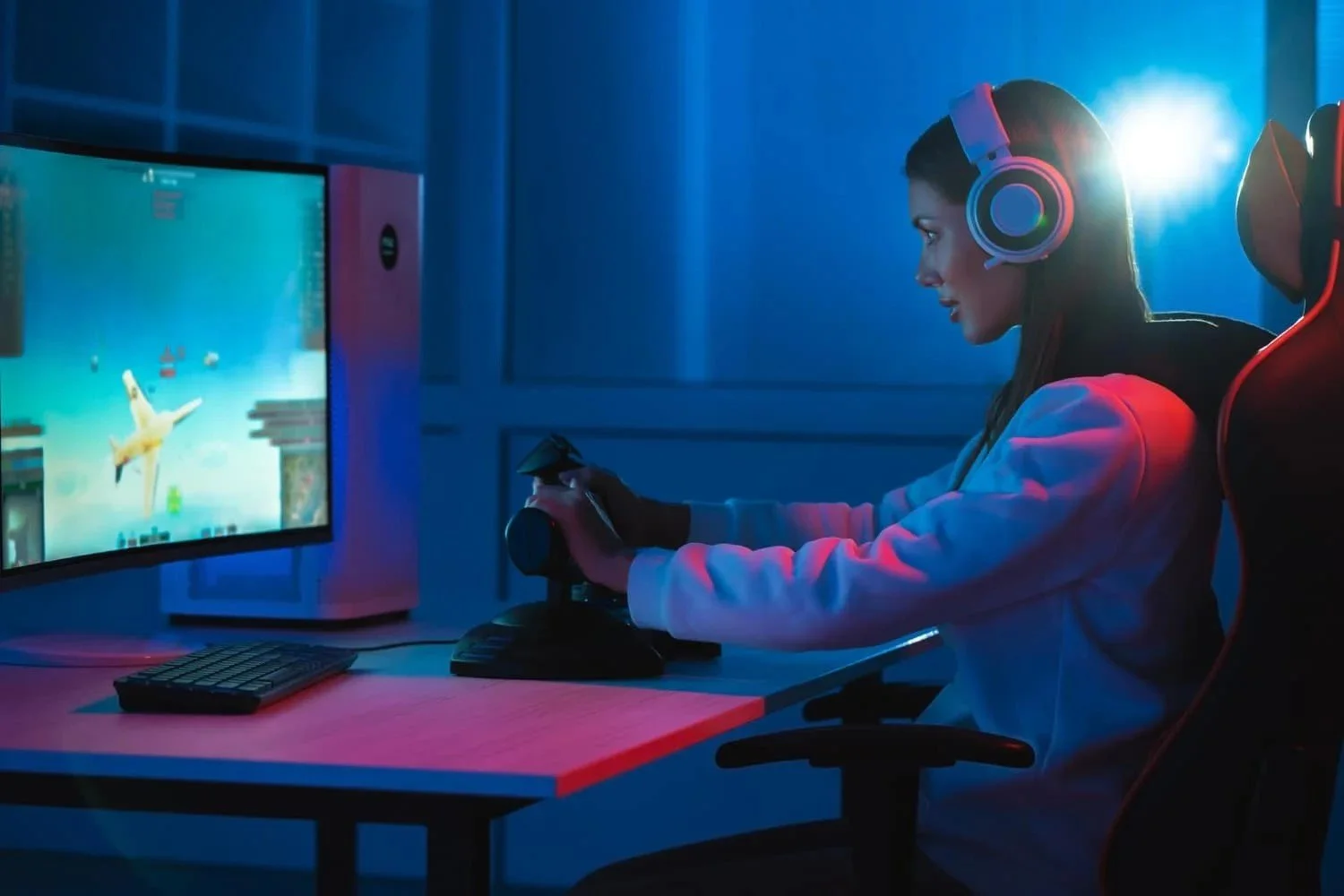New Media Law provides legal advice in the creative industries - with a niche focus on digital media.
Key Sectors
Technology
Technological advances in our everyday lives continually change the way that our clients do business. With many years’ experience in the tech industry our lawyers advise on a wide range of issues in the sector (whether for IT suppliers or users).
Brand Management
Brand management is the process of maintaining, improving and upholding a brand so that the name is associated with positive results. We can offer advice on all aspects of brands and intellectual property and we also offer specialist advice on trade mark law.
Film and TV
We give advice across various aspects of the Film and TV sectors, including film financing, production, post production or enforcement of IP, whether advising small independent film makers or major Hollywood producers and production companies. We advise on all aspects of programme creation and production, whether for small independent programme makers or national television broadcasters and production companies.
Publishing
With many years’ expertise working in the publishing industry we advise on all aspects of the publishing sector. Our broad range of knowledge makes us well placed to advise not just on traditional magazine publishing matters, but also all aspects of digital publishing as well.
Music
Our music team offers expert advice to clients based on first hand experience in the music industry. We advise established record companies, music publishers, managers and internationally recognised artists and songwriters, as well as those trying to break into the music industry. With an ex VP of BMI in the USA on our team, who has many years expertise of international digital rights, we are well placed to advise new models on their strategy, rights acquisition and licensing. We also represent music catalogues for sale and purchase.
Start-ups
With expertise in both commercial and corporate law, we can help with the development and growth of new businesses. We also cover many of the legal issues that affect start-up businesses including; financial advice, intellectual property, dispute resolution, private client, real estate and employment law.
Retail
We are a commercial law firm in addition to a media law firm. As such, we have expertise in the core areas relating to the retail sector. These include the following practice areas: licensing, dispute resolution, real estate, corporate / commercial, IP, employment and competition.
Software Development
We have an expert team that provides advice on the legal issues associated with software development. Our team includes lawyers who specialise exclusively in technology, e-commerce and digital media as well as commercial lawyers with expertise in IT and Data Protection.
Private Client
We cover the entire range of "Private Client law" from simple to complex wills (including varying Wills after death by "Deeds of Variation"), estate and wealth planning and in particular ways to mitigate inheritance tax on death; advice on and the setting up of lifetime Settlements and Trusts in Wills; all forms of Probate and Letters of Administration on Intestacy (where there is no Will); cross-border matters and domicile and residence issues; Court of Protection and Public Guardianship matters to include the preparation of Lasting Powers of Attorney.
Mediation
If you are looking for experts to help you resolve a dispute that has reached deadlock new media law can provide a range of mediation services. Mediation is a form of alternative dispute resolution (ADR). It is a flexible and confidential process in which a trained neutral actively assists the parties to achieve a negotiated agreement of a dispute, with the parties in ultimate control of the decision to settle and its terms.
Practice Areas
Competition law
We have local and international experience in competition law and provide insight and solutions to the full range of our clients' competition and sector regulatory needs - in the UK, EU and beyond. A business does not need to have market power for competition law to be relevant to its activities.
Data Protection and Privacy
Our Data Protection practice areas advises on all aspects of data protection and privacy. Our team possesses expert knowledge across the law and information technology, as well as e-commerce. We have experience in handling corporate and commercial transactions with an intellectual property element and can therefore offer advice to clients on how best to protect their own intellectual property whilst being compliant with UK and EU data protection regulations.
Defamation and Reputation Management
We provide expert advice on all aspects of defamation. We advise on both 'pre-event' and 'post-event' defamation issues, regularly advising international book and magazine publishers as to the potential issues pre-publication.
Digital Media
We offer expert advice on all aspects of digital and interactive media. We advise clients throughout all stages of the process, including the creation, commissioning and delivery of digital content, from online music sites and mobile phone content providers, to computer games and app developers.
Employment
We provide comprehensive advice and support on a full range of employment related matters, both in relation to disputes and corporate governance. We advise clients on everything from employment contracts, business restructuring and senior appointments to redundancies, terminations and dealing with employment related disputes. We also provide advice on human resources.
Intellectual Property
Our team offers advice on all aspects of intellectual property ("IP"), notably copyright, designs and trade marks. Understanding IP is essential to the commercial success of a company so we regularly perform IP audits and advise clients on how best to exploit and protect their IP.
Licensing
We provide advice on all aspects of national and international online licensing, notably in respect of music publishing (as well as in the use of master recordings and films). We have expertise in initiating and designing, then negotiating and finalising, digital rights licences in the US and across the EU.
Media Finance
We regularly offer expert advice upon the financial aspects of digital distribution agreements (music, TV, film, and podcasting), e-commerce websites, mobile phone content agreements, internet service provider ("ISP") agreements, satellite broadcast agreements and digital rights management systems.
Real Estate
We provide expert advice on all aspects of real property law in England and Wales. This includes advice on property transactions (notably the sale and purchase of residential and commercial properties, as well as residential and commercial leaseholds) and specialist advice on issues such as land development, and rights to light.
Our People
Selected Clients
Past and Present – we represent both small and large businesses
News & Events
News on NML and developments in the legal sphere
Contact Us
Find Us
Contact
Phone: +44 (0) 207 291 1670
Fax: +44 (0) 207 291 1680
Location
The Tapestry Building
51-52 Frith Street
London W1D 4SH
New technology has evolved to the point where the entertainment world has welcomed a strange new type of performance: one that the artist does not even need to be present for. From ABBA Voyage in London to resurrecting the dead, such as Tupac Shakur’s digital appearance at Coachella (2012), artists have been ‘performing’ without the need to physically be there. While undeniably impressive, these concerts cause some significant legal and ethical concerns: who actually owns the rights to the deceased artist’s image? And who, if anyone, has the right to ‘resurrect’ them?
Despite the common misconception that these apparitions are ‘holograms’, the technology behind them is in fact a mix of CGI (computer-generated imagery) and theatre tricks such as pepper’s ghost. There are two approaches to creating these digital ‘avatars’. The direct approach, used, for example, in the ABBA Voyage concert, uses live actors. These actors (or, in the case of ABBA Voyage, the actual members of the band) perform in front of a blue or green screen wearing sensors. Infrared cameras are used to record their performance. Motion capture records their movements and facial expressions (in this case, 160 cameras recorded the members of the band’s performances over a 5 week period). Theatre tricks, such as ‘pepper’s ghost’ from the 19th century helps to enhance the illusion, making it more realistic by projecting images of performance on a screen, creating the appearance of a 3D figure. The indirect approach, however, uses recordings of archival performances and compiles them to create a ‘new’ performance through digital or computer software.
Production companies, such as ILM (the company behind ABBA Voyage) and Dneg (a large, UK-Indian company based in London) are looking into how AI may help this technology evolve, with Dneg acquiring the AI company Metaphysic, merging it with its technology division (Brahma). This, while a huge advancement in technology, poses certain concerns; the technology has already evolved such that one can create the illusion of a person who is not actually there, including those who are deceased. For example, the ‘hologram’ (in reality, a CGI image) of Tupac Shakur at the 2012 Coachella, 16 years after his death in 1996. If AI gets involved, what could be created next? Who has the rights to the image being created?
The legal frameworks in place to protect artists are not clear cut and simple, and vary from country to country (or, indeed, state to state). While the use of their work is more clear, by getting permission from their record label or production company in respect of the master recordings, or the publisher (in respect of the songs), the use of an artist’s image is more complex.
Personality rights refer to the rights to control the use of one’s name, image, likeness and voice to avoid the exploitation of these characteristics in commercial contexts.
These are considered property, so can be passed to the estate or beneficiaries on the death of the artist.
An example of personality rights in action is in Ford v Midler, where Bette Midler refused an offer to use her voice in a Ford commercial. The company hired a singer to mimic her voice and used one of her songs, editing it to fit the advertisement. This was considered unlawful, as Midler had not given her consent for her voice to be used. The jury was in her favor and she was awarded in damages what she would have received for the commercial.
While the US does not have a federal law protecting personality rights, some states recognise rights of publicity, protecting artists against the unauthorised use of their name, image, likeness or voice in commercial contexts.
California’s Celebrities Rights Act (1985) protects the image, voice and likeness of a celebrity for 70 years after their death. This law was recently (as of January 2025) expanded to include ‘digital’ replications of the artists.
New York published a law on 21st May 2021 publishing post-mortem personality rights for ‘deceased performers’ and ‘deceased personalities’.
The artists must be domiciled in New York at the time of their death.
‘Deceased personalities’ are given traditional rights of publicity to protect them from the commercial use of their name, image and likeness for commercial purposes.
‘Deceased performers’ under this law are given more specific protection against the unauthorised use of ‘digital replicas’ replicating their likeness and work, where the intention is to deceive the public into thinking that the artist is present.
While this may be a step in the correct direction, is it enough?
In most cases, the public would be aware that the artist is deceased. Does that make it ethical to exploit them, using their image without their explicit consent, after their death?
In the UK, the law offers even less protection from these issues.
Personality rights are not recognised, an individual must rely on existing legal frameworks.
For example, passing off, protecting against false endorsements. The estate would need to prove that the artist had commercial ‘goodwill’, that the intention of someone using their image was to deceive the public and that damage occurred as a result.
Copyright laws state that permission would be needed from whoever owns the rights to the artist’s work to use it in a performance. While this may be clear and simple, the emergence of AI technology complicates it: if the voice and style of an artist is used to generate a new performance by AI (artificial intelligence) is that considered unlawful?
Trademark may help to clarify this issue: if an artist has trademarked their name or image, use could be considered an infringement. However, this only applies where there is a trademark, which many artists may not have.
Data protection may offer strong protection against the use of someone’s image, however, would not apply to deceased artists. This means that estates would not have much protection under GDPR for the rights of the artists.
While there are conversations about making changes to the law with the emergence of AI and other technology, as of yet the legal concerns are unclear.
If they were to be clarified, ethical issues would still remain. Who can actually consent for a deceased performer? Is it a tribute or exploitation? Where is the line, and should it have been drawn already?
In conclusion, technology is rapidly advancing and the law has yet to catch up. Without formal post-humous personality rights, estates have little protection. In the UK, they’re forced to rely on existing passing off, copyright or trademark laws which were not prepared to deal with digital forms. While some states in the US protect artists to a certain extent, there are no federal laws protecting artists or their estates from these computer generated resurrections.
This remains a complex legal and ethical question, and as technology continues to advance, the legal system must too.
by AMALIA PAUL
New Media Law
July 2025
For more information, please contact:
Ian Penman, ian@newmedia.law, +44(0)7765 244 111
National Law Journal, 2025. A New Year Brings New Restrictions Relating to AI and California Performers. National Law Journal. [online] Available at: https://www.law.com/nationallawjournal/2025/01/01/a-new-year-brings-new-restrictions-relating-to-ai-and-california-performers/ [Accessed 4 Jul. 2025]
California Civil Code § 3344.1 (1985). Use of Deceased Personality’s Name, Voice, Signature, Photograph, or Likeness. [online] California Legislative Information. Available at: https://leginfo.legislature.ca.gov/faces/codes_displaySection.xhtml?sectionNum=3344.1.&lawCode=CIV[Accessed 4 Jul. 2025]
New York Civil Rights Law § 50-f (2021). Right of Publicity for Deceased Performers and Personalities. [online] Available at: https://www.nysenate.gov/legislation/laws/CVP/50-F [Accessed 4 Jul. 2025]
Michael Bywell joins New Media Law
PRESS RELEASE - Friday 3 January 2025
New Media Law is delighted to announce that Michael Bywell will be joining the team as a Partner from 6 January 2025.
Ian Penman and Paul Hosford co-founders of New Media Law said:
“Michael’s reputation and work in the tech and media areas, together with his wider commercial litigation experience and expertise which spans 30 years in the UK and internationally, complements our existing practice very well. We are very excited to have him onboard.”
Michael Bywell said:
“Joining Ian, Paul and the team at New Media Law is something I’ve been interested in ever since they set up back in 2002. I’ve watched and admired the way in which they have the established themselves and grown over the years, so jumped at the opportunity to join when it arose.
The firm’s inclusive culture and low leverage, client-friendly friendly business model underpins their success, and I am very much looking forward to introducing my clients and contacts to the New Media Law platform.”
Note on New Media Law LLP:
New Media Law was founded by Ian Penman and Paul Hosford in 2002 as a Soho-based boutique law firm to service clients in the tech, media and entertainment areas. In 2004 it added a consultant solicitor model and now has 20+ lawyers among its ranks.
Practice areas include corporate, commercial, competition and compliance, data protection and privacy, defamation and reputation management, dispute resolution, employment, IP, licensing, media finance and private client.
Sectors: tech, film & TV, brand management, publishing, music, start-ups, retail, advertising and marketing, life sciences and renewable energy.
Clients include:
Music publishers and owners
News, magazine and book publishers
Games platforms
Broadcasters
Production companies
Talent agencies
Cyber, technology and communications companies
Interests operating in the renewable energy area
For more information, please contact:
Ian Penman, ian@newmedia.law, +44(0)7765 244 111 Paul Hosford, paul.hosford@newmedialaw.biz, +44(0)7765 244 222
Michael Bywell can be contacted at michael@newmedia.law

















































































